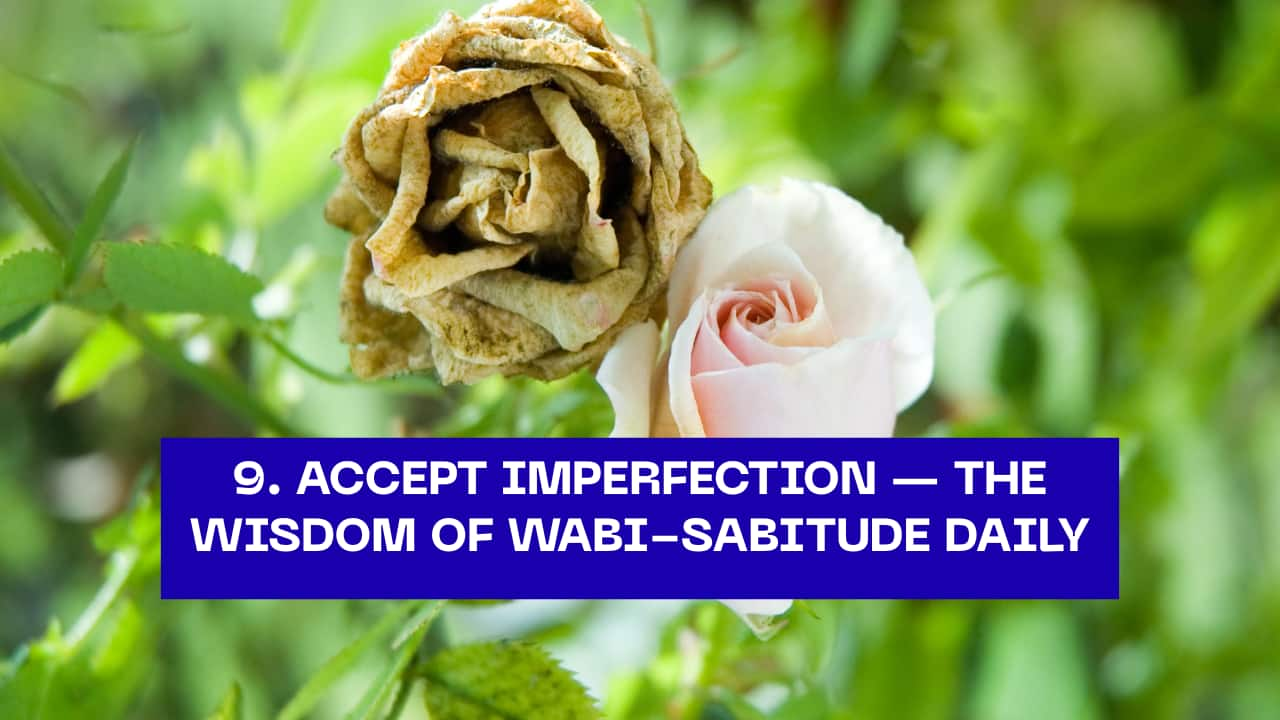How to Ikigai: 10 Japanese Secrets to a Long and Happy Life
The Japanese concept of Ikigai translates to “a reason for being.” It’s the art of finding joy, purpose, and balance in everyday life. Here are 10 timeless Japanese secrets that can help you uncover your Ikigai.
1/10

1. Find Your Purpose — Your “Reason for Being”
Ikigai begins with purpose. Ask yourself: What makes you excited to wake up in the morning? It doesn’t have to be grand — even caring for family, nurturing a garden, or perfecting your craft can give life direction and joy.
Ikigai begins with purpose. Ask yourself: What makes you excited to wake up in the morning? It doesn’t have to be grand — even caring for family, nurturing a garden, or perfecting your craft can give life direction and joy.
2/10

2. Embrace the Art of Kaizen (Continuous Improvement)
Kaizen teaches that small, consistent improvements create lifelong change. Whether it’s reading a page a day, taking a short walk, or learning one new word, progress — no matter how tiny — adds up over time.
Kaizen teaches that small, consistent improvements create lifelong change. Whether it’s reading a page a day, taking a short walk, or learning one new word, progress — no matter how tiny — adds up over time.
3/10

3. Stay Active, Even After Retirement
In Japan’s “blue zones” like Okinawa, elders rarely stop working completely. They continue tending gardens, cooking, or teaching — activities that keep the body moving and the mind sharp.
In Japan’s “blue zones” like Okinawa, elders rarely stop working completely. They continue tending gardens, cooking, or teaching — activities that keep the body moving and the mind sharp.
4/10

4. Cultivate Meaningful Connections
Loneliness shortens life; community extends it. The Japanese value moai — close-knit social circles that support one another emotionally and financially. Surround yourself with people who lift your spirit.
Loneliness shortens life; community extends it. The Japanese value moai — close-knit social circles that support one another emotionally and financially. Surround yourself with people who lift your spirit.
5/10

5. Eat Mindfully — and Stop Before You’re Full
Follow Hara Hachi Bu, the Okinawan rule of eating until you’re 80% full. This mindful eating habit helps maintain a healthy weight, reduces disease risk, and fosters gratitude for every meal.
Follow Hara Hachi Bu, the Okinawan rule of eating until you’re 80% full. This mindful eating habit helps maintain a healthy weight, reduces disease risk, and fosters gratitude for every meal.
6/10

6. Respect Nature and Live in Harmony with It
Japanese life is deeply intertwined with nature — from cherry blossom festivals to forest bathing (Shinrin-yoku). Spending time outdoors restores peace, reduces stress, and reconnects you to life’s natural rhythm.
Japanese life is deeply intertwined with nature — from cherry blossom festivals to forest bathing (Shinrin-yoku). Spending time outdoors restores peace, reduces stress, and reconnects you to life’s natural rhythm.
7/10

7. Simplify and Declutter — Less Is More
Minimalism isn’t about owning nothing; it’s about cherishing what truly matters. Clear your space, clear your mind, and let go of the excess that weighs you down.
Minimalism isn’t about owning nothing; it’s about cherishing what truly matters. Clear your space, clear your mind, and let go of the excess that weighs you down.
8/10

8. Practice Gratitude Daily
Gratitude is at the heart of Japanese culture — seen in simple gestures like saying “Itadakimasu” before meals. Take a moment each day to appreciate small joys: sunlight, laughter, a warm cup of tea.
Gratitude is at the heart of Japanese culture — seen in simple gestures like saying “Itadakimasu” before meals. Take a moment each day to appreciate small joys: sunlight, laughter, a warm cup of tea.
9/10

9. Accept Imperfection — The Wisdom of Wabi-Sabi
Life is imperfect, and that’s what makes it beautiful. Wabi-sabi teaches us to embrace flaws, cracks, and changes as part of our journey. Instead of chasing perfection, cherish authenticity.
Life is imperfect, and that’s what makes it beautiful. Wabi-sabi teaches us to embrace flaws, cracks, and changes as part of our journey. Instead of chasing perfection, cherish authenticity.
10/10

10. Live in the Present Moment
Japanese mindfulness traditions — from Zen meditation to tea ceremonies — remind us that joy lives in the now. Focus on your breath, your work, your meal — one thing at a time, fully and peacefully.
Japanese mindfulness traditions — from Zen meditation to tea ceremonies — remind us that joy lives in the now. Focus on your breath, your work, your meal — one thing at a time, fully and peacefully.
Discover the latest Business News, Budget 2025 News, Sensex, and Nifty updates. Obtain Personal Finance insights, tax queries, and expert opinions on Moneycontrol or download the Moneycontrol App to stay updated!






